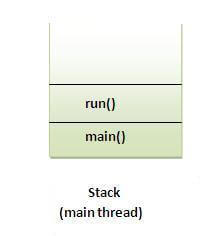|
Output:running...
 Problem if you direct call run() method
Problem if you direct call run() methodOutput:1
2
3
4
5
1
2
3
4
5
| As you can see in the above program that there is no context-switching because here t1 and t2 will be treated as normal object not thread object. |
No comments:
Post a Comment